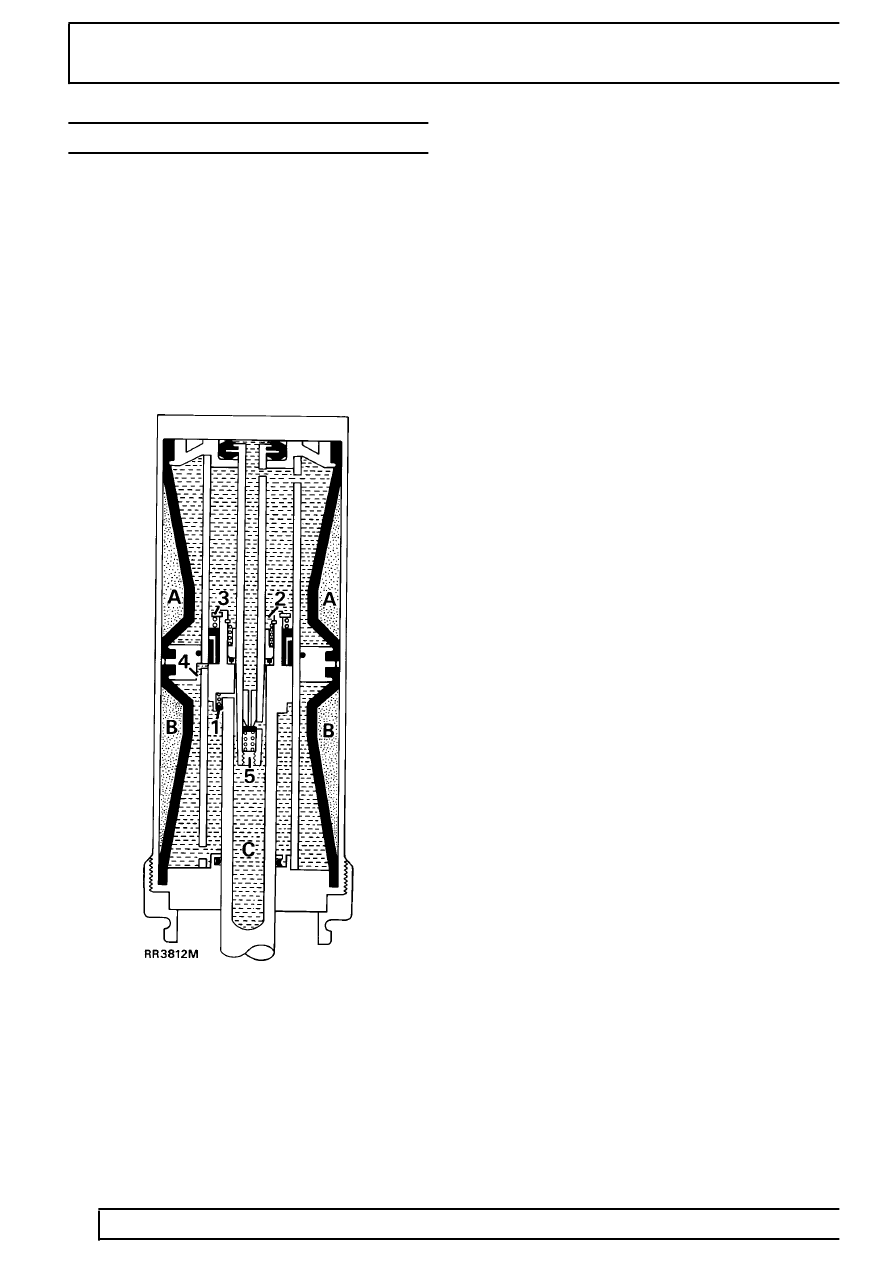Range Rover Classic Rear Suspension: Self Levelling Unit

64
REAR SUSPENSION
2
DESCRIPTION AND OPERATION
SELF LEVELLING UNIT
DESCRIPTION
The levelling unit fitted to the rear axle is a self
contained and sealed for life hydropneumatic device,
which resembles a large telescopic damper. The unit
utilizes the energy produced by the relative movement
of the axle to the vehicle, when the vehicle is in
motion, to maintain the vehicle at nominally level
height. The unit will compensate for additional loads
placed on the vehicle up to the recommended
maximum. Excess load beyond the design limits of the
unit will prevent it levelling the vehicle but, will not
impede its capabilities as a damper.
OPERATION
Levelling the suspension (Pumping up)
The unit, contains hydraulic fluid and an inert gas,
pressurised to approximately 65 bar during
manufacture. The gas which provides the springing
medium, is contained in two chambers A and B and is
separated from the fluid by rubber sleeves. The
movement of the axle and pumping action of the
piston shaft when the vehicle is in motion, causes fluid
to be transferred from the lower chamber to the upper
chamber via internal valves 1 and 2 and high pressure
chamber C. As the fluid is transferred to the upper
section of the unit, pressure is applied to the gas in
chamber A which provides the springing. At the same
time the piston shaft is forced outwards increasing the
operating length of the levelling unit.
Level position (Fluid circulates)
When the optimum level position is reached, as
illustrated in RR3812M, fluid pumped from the lower
section to the upper section as previously explained,
circulates via valve 3 and port 4 back to the lower
section.
Full bump/over load
If the vehicle suspension encounters a large ’bump’ in
the road or is over loaded the unit provides a damping
effect only, as valves 5 and 1 are forced open allowing
the pressure to escape from the upper to the lower
chamber.
Full rebound
If the vehicle suspension encounters a large ’hole’ in
the road, the unit extends causing port 4 to allow free
flow of fluid between the upper and lower chambers
and the pressures to equalise.
